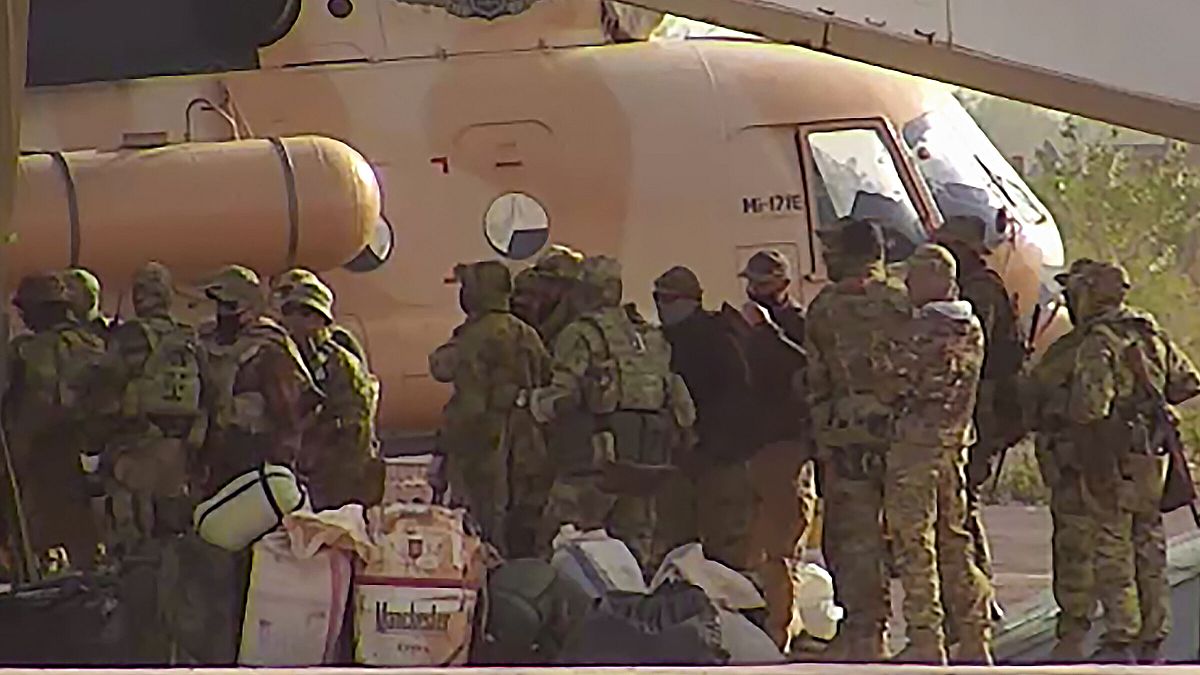Violence against ordinary Malians appears to have increased since the departure of a UN peacekeeping mission last year.
Russian mercenaries have committed serious abuses against civilians in Mali, as have the country’s army and the Islamist groups against whom they are jointly fighting, Human Rights Watch (HRW) has said.
In a report published on Thursday, the NGO accused Russian fighters — who are part of its “African Corps”, which was formerly known as the Wagner Group — of deliberately killing non-combatants in its fight against jihadists in the west African country.
HRW found that the Russian mercenaries and the Malian army had together killed at least 32 civilians and burned at least 100 homes in central and northern Mali since May.
Seven of the victims died in a drone attack, while four others were forcibly disappeared, according to the report.
Since June, two Islamist groups, the Group for the Support of Islam and Muslims (JNIM) and the Islamic State in the Greater Sahara (ISGS), have killed at least 47 civilians and displaced thousands of others.
The JNIM is thought to have also burned more than 1,000 homes and to have stolen thousands of livestock.
Due to the difficulties of conducting research, HRW said the true figures are likely to be much higher.
“The Malian army with the Wagner Group and Islamist armed groups have been targeting civilians and their property in violation of the laws of war,” said Ilaria Allegrozzi, HRW’s senior Sahel researcher.
Allegrozzi said her organisation is “deeply concerned that the situation is even worse than reported”, citing how it became much more difficult to glean information after the departure of a UN peacekeeping mission last year.
“Malian authorities’ failure to hold members of the security forces, the Wagner Group, and other armed groups to account for grave abuses has eased the way for further atrocities,” Allegrozzi added.
An attack on 8 May by the Malian Army and Russian mercenaries on the village of Barikoro, which is located in a JNIM-controlled area, was among the atrocities highlighted by the report. Witnessed said the perpetrators killed two men and a boy.
“I found my cousin’s body on the west side of the village with eight gunshots: in the forehead, the head, the back, and the legs,” one relative said. “Metres away we found the bodies of two Fulani men also riddled by bullets, so we dug three holes and covered them with sand.”
A 30-year-old man from Ndorgollé in central Mali told researchers about the difficulties facing parts of the country.
“Our area is dominated by the JNIM, and you must deal with them. They give you permission to graze cattle and to fish. It’s a matter of survival not collaboration. But when you deal with them, you become a [government] target, even if you are not a jihadist,” he said.
The targeting of civilians in Mali appears to be on the increase, according to other reports compiled by the non-profit research group Armed Conflict Location & Event Data (ACLED).
The Malian army and its allies killed around 1,063 civilians in 255 operations between 1 January and 31 October this year, compared to the 912 they killed over the same period in 2023, according to the ACLED.
Over the first 10 months of this year, jihadi groups killed 478 civilians in 326 attacks, a rise from the 344 killed between the start of January and the end of October last year, it added.
For more than a decade, successive Malian governments have attempted to root out the JNIM and the ISGS. Thousands of civilians have died and more than 350,000 have been forcibly displaced during the conflict.
After taking power in a coup in May 2021, the country’s current leaders turned to Russian mercenaries instead of the French troops who had been providing military support.
The last French troops left the west African country in August 2022, almost a decade after Paris first sent security assistance.

